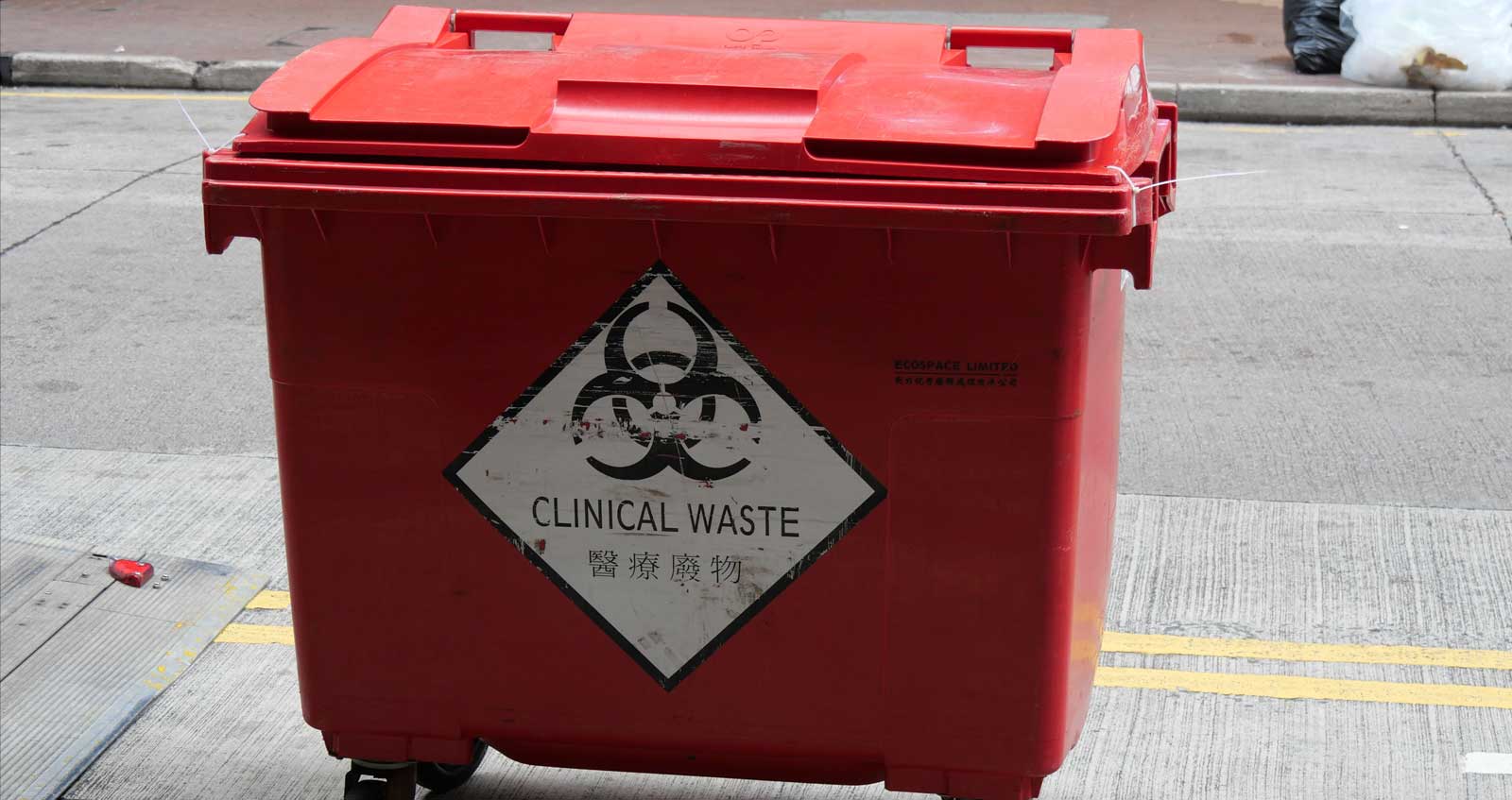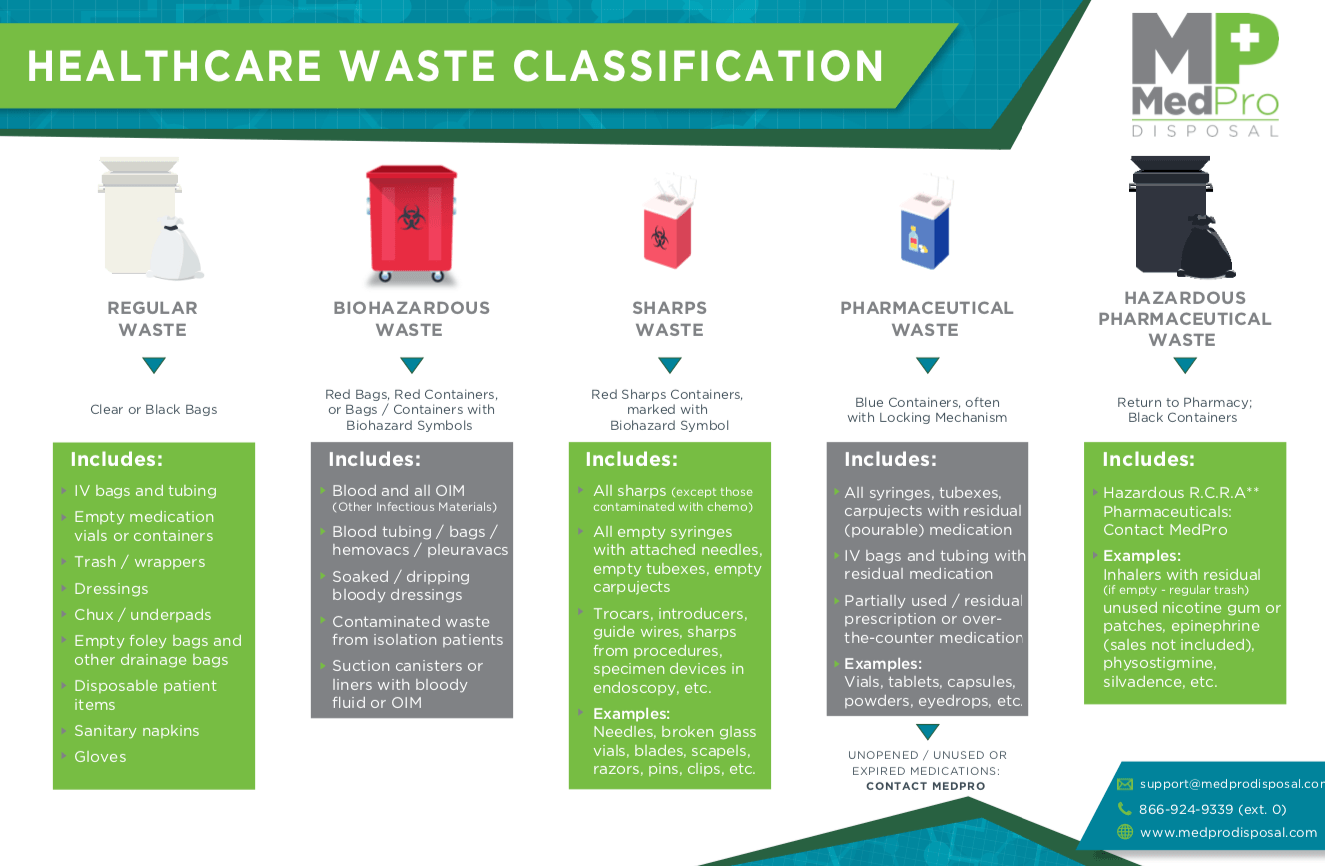Local Commitment: Your Area's Leading Medical Waste Removal Near Me
The Value of Correct Waste Disposal Practices
The administration of waste is a vital facet of ecological stewardship that often goes unnoticed in our day-to-days live. Correct waste disposal techniques are not just an issue of benefit however are important for securing our ecological communities and public wellness. From the consequences of improper waste disposal on our environment to the lasting effects for future generations, the importance of embracing lasting waste monitoring techniques can not be overstated. By discovering the ecological influence of careless waste disposal, the benefits of recycling initiatives, and the value of neighborhood interaction in waste decrease initiatives, a deeper understanding of why appropriate waste disposal methods are vital emerges.
Environmental Impact of Improper Disposal
Improper disposal of waste presents a considerable threat to the environment as a result of its destructive results on ecosystems and human health. When waste is not correctly taken care of, it can lead to air pollution of the soil, water, and air, triggering injury to numerous plant and pet varieties. click here. Chemicals and toxic substances from incorrectly disposed waste can leak right into the ground, polluting groundwater resources and affecting the wellness of both wild animals and human beings
Moreover, the buildup of waste in landfills generates greenhouse gases like methane, adding to climate adjustment and global warming. Improper disposal methods also result in littering, which not just degrades the visual worth of the environment but can also damage wildlife via consumption or complexity.
To reduce these ecological effects, it is essential for areas and people to take on appropriate garbage disposal methods such as reusing, composting, and accountable contaminated materials disposal. By taking these steps, we can aid safeguard ecosystems, protect natural resources, and guard human health and wellness for existing and future generations.
Benefits of Recycling Programs
Consistently getting involved in recycling programs offers various benefits for both the atmosphere and culture as a whole. This preservation of resources not only aids in keeping environmental balance but additionally adds to lasting development.
Moreover, reusing plays an important duty in decreasing energy consumption and greenhouse gas exhausts. The production of items from recycled materials generally calls for much less power compared to producing from virgin sources - medical waste removal. As a result, the carbon footprint associated with the manufacturing process is substantially lowered, helping in the battle versus environment modification
Furthermore, reusing programs create task possibilities in the reusing market, promoting economic growth and social well-being. By motivating the recycling and reuse of materials, these programs sustain a round economy that decreases waste generation and makes the most of resource performance, eventually bring about a cleaner, greener future for generations to come.
Hazardous Waste Monitoring Standards
Applying effective contaminated materials monitoring guidelines is crucial for minimizing environmental and health and wellness risks related to the incorrect disposal of hazardous products - click here. Correct handling, treatment, and disposal of unsafe waste are necessary to avoid contamination of dirt, water sources, and air
One trick guideline is correct labeling of contaminated materials containers to make certain secure handling and transport. Furthermore, facilities need to abide by stringent storage space needs to stop leaks, spills, or crashes that could endanger human health and wellness and the setting. Regular training programs for workers on hazardous waste management methods are likewise vital to ensure compliance with regulations and promote a society of safety.
In addition, dangerous waste needs to be segregated based on its properties to protect against chain reactions that might cause unsafe scenarios. Carrying out a comprehensive waste tracking system can assist check the movement of hazardous products from generation to disposal, making sure openness and accountability. By adhering to these guidelines vigilantly, companies and markets can add to a safer and cleaner atmosphere for present and future generations.
Area Involvement in Waste Decrease
To properly address the environmental and wellness threats connected with harmful waste management, involving the community in waste reduction campaigns is critical. Community participation plays a vital role in promoting lasting waste administration methods and cultivating a culture of environmental responsibility. By educating homeowners concerning appropriate waste segregation, reusing, and composting strategies, neighborhoods can significantly minimize the quantity of waste sent out to landfills, thereby reducing ecological air pollution and preserving all-natural sources.
Community engagement in waste decrease programs likewise assists in elevating understanding regarding the relevance of waste reduction and encourages individuals to embrace green practices in their day-to-day lives - medical waste removal. Collective initiatives between neighborhood authorities, waste administration companies, and community participants can result in the application of effective waste reduction techniques customized to the details requirements of each neighborhood or community
In addition, neighborhood interaction cultivates a feeling of ownership and accountability amongst citizens, encouraging them to take positive steps towards reducing waste generation and promoting a cleaner, healthier atmosphere for future and current generations. By collaborating towards common waste reduction goals, neighborhoods can make a considerable influence on minimizing the adverse results of inappropriate waste disposal practices.

Future of Sustainable Waste Practices
Traditional waste disposal methods, such as landfilling and incineration, are no longer sustainable in the long term due to their substantial environmental effects. Relocating onward, the future of lasting waste techniques exists in embracing a circular economic climate approach, where click here sources are recycled, reused, or repurposed to decrease waste generation.
Technical innovations play a key duty fit the future of lasting waste techniques. Advanced waste sorting and reusing modern technologies can assist improve the efficiency of waste management procedures, enabling the healing of important resources from waste streams. Additionally, the adoption of naturally degradable materials and composting methods can aid lower the quantity of organic waste winding up in landfills, thereby mitigating greenhouse gas emissions.
Moreover, advertising consumer understanding and education on appropriate waste partition and disposal techniques is crucial for driving behavior modification towards sustainability. By fostering a society of waste decrease, recycling, and reuse, areas can collectively add to a cleaner and healthier environment for future generations.

Final Thought
Finally, correct garbage disposal techniques are vital for minimizing ecological influence and promoting sustainability. By applying reusing programs, taking care of dangerous waste appropriately, and motivating area participation in waste decrease efforts, we can work towards a cleaner and healthier setting. It is crucial for individuals, companies, and federal governments to focus on sustainable waste practices for the future well-being of our planet.

From the repercussions of inappropriate waste disposal on our setting to the lasting implications for future generations, the importance of adopting sustainable waste monitoring methods can not be overstated. By exploring the ecological impact of untrustworthy waste disposal, the advantages of reusing efforts, and the importance of neighborhood engagement in waste decrease initiatives, a deeper understanding of why proper waste disposal techniques are vital arises.
By informing residents concerning correct waste segregation, recycling, and composting methods, neighborhoods can dramatically minimize the quantity of waste sent to landfills, thereby lessening ecological air pollution and preserving all-natural sources. (click here)
Moving onward, the future of lasting waste practices lies in embracing a circular economy technique, where resources are recycled, reused, or repurposed to decrease waste generation.
Advanced waste sorting and reusing technologies can aid enhance the efficiency of waste monitoring processes, permitting for the healing of important resources from waste streams.